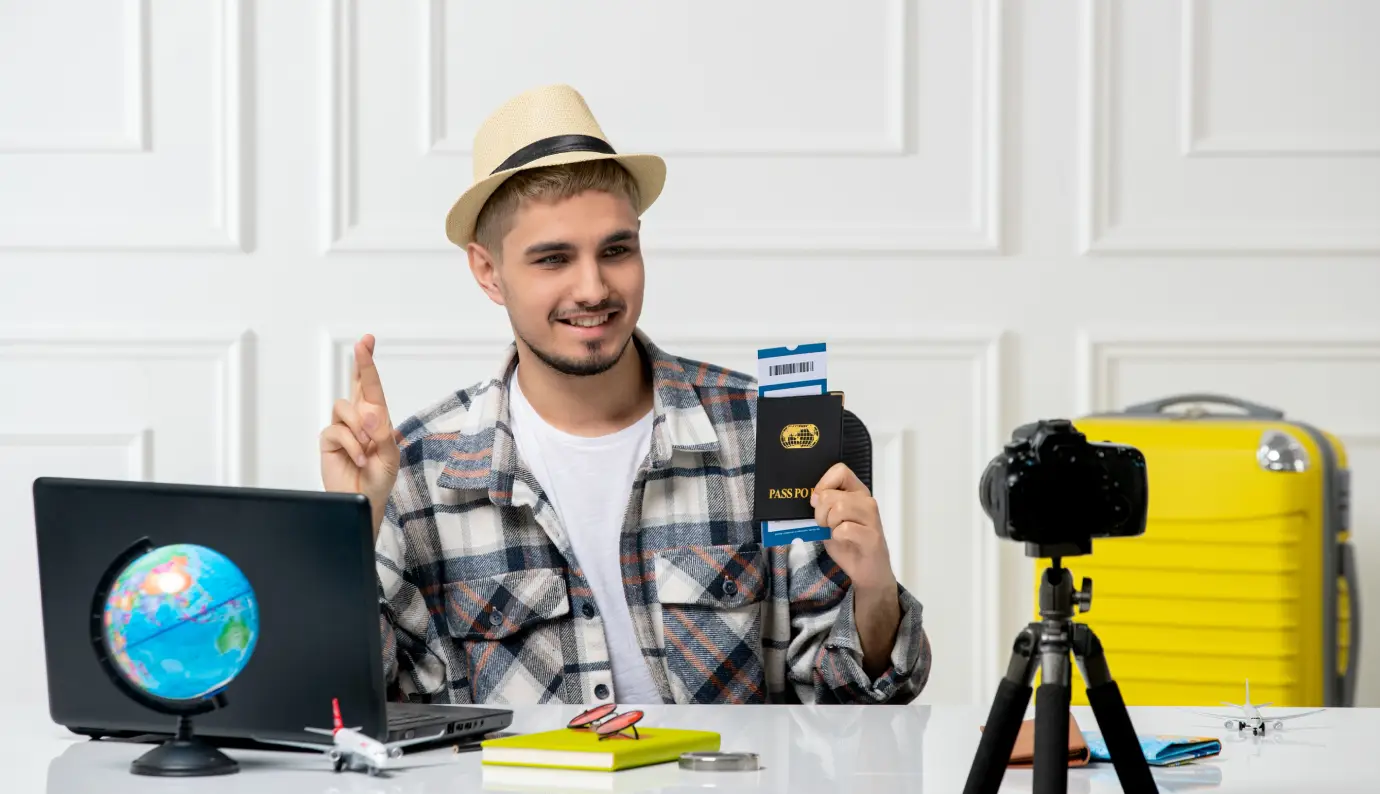Applying for a visa can often be a complex and time-consuming process, but having the right documents can make all the difference. Whether you’re traveling for business, leisure, education, or to join family members, ensuring that you have all required documentation is crucial to avoiding delays or denials. This blog will walk you through the key documents that most visa applications require, providing you with the knowledge you need for a smooth application process.
1. Valid Passport
A valid passport is the cornerstone of any visa application. Without it, you cannot apply for a visa. Here are a few tips to keep in mind when preparing your passport for your visa application:
- Your passport should be valid for at least 6 months beyond your intended date of travel.
- Ensure that it has enough blank pages for the visa stamps and any additional immigration entry/exit stamps.
- If your passport is damaged or has expired, renew it before starting the visa application process.
2. Completed Visa Application Form
Most countries require you to fill out a specific visa application form, which can often be found online. The form typically asks for:
- Personal details (name, address, nationality, etc.)
- Travel information (dates, purpose, destination)
- Background questions (criminal history, health conditions, etc.) Make sure you fill out the form accurately and truthfully, as any inconsistencies or errors could lead to rejection.
3. Passport-Sized Photographs
Visa applications often require recent passport-sized photographs. These are typically needed for both the visa itself and immigration documents.
- Ensure that the photos adhere to the specific size and formatting requirements set by the embassy or consulate. These can include criteria like background color, clothing, and facial expression.
- Generally, you’ll need to submit two or more photos, but check with the consulate for exact specifications.
4. Proof of Travel Itinerary
This is one of the most critical documents in the visa application process. The itinerary gives the consulate or embassy a clear understanding of your travel plans. The following details should be included:
- Dates of arrival and departure
- Flight reservations or tickets
- Accommodation details (hotel bookings, rental agreements, or invitation letters from hosts)
- Travel insurance (in some cases, you may be required to show that you have travel insurance that covers medical expenses, cancellation, and emergency evacuations).
5. Financial Proof (Proof of Funds)
To ensure you can financially support yourself during your stay, many countries require proof of sufficient funds. This document helps the consulate confirm that you won’t become a financial burden while in the destination country. Common forms of financial proof include:
- Bank statements from the last three to six months
- Pay stubs or salary slips
- Tax returns or other income proofs
- A sponsorship letter, if someone else is funding your trip, along with their financial documents
6. Travel Health Insurance
Some countries, especially those within the Schengen Area or countries like the USA, mandate travel insurance as part of the visa application. This insurance typically covers medical emergencies, hospitalization, and repatriation if necessary.
- The coverage must meet a minimum required amount set by the destination country.
- Be sure to purchase travel insurance that complies with the country’s regulations.
7. Accommodation Details
You must prove that you have arranged accommodation for your stay. Depending on the country and type of visa, this can take various forms:
- Hotel bookings or confirmation of paid reservations
- An invitation letter from a host (for tourist or family visit visas)
- Rental agreements for long stays Make sure your accommodation details match the information you provided in your visa application form.
8. Invitation Letter (if applicable)
If you’re visiting family or friends, you may need an invitation letter from your host. This letter should outline the following:
- Your host’s full name, address, and contact details
- The purpose of your visit and your relationship with the host
- The duration and dates of your visit
- A declaration that your host will provide accommodation (and possibly financial support) In some cases, the host may also need to provide proof of their legal status in the country (e.g., citizenship or residency).
9. Employment and Leave Approval Documents
For those applying for a work or business visa, or even for a short-term tourist visa when employed, it’s crucial to provide proof of employment and approval for your leave. Documents may include:
- A letter from your employer confirming your employment status, position, salary, and leave approval for the duration of your trip.
- Payslips from the past few months
- If self-employed, tax returns and business documents
10. Educational Documents (for Student Visas)
If you’re applying for a student visa, you’ll need to provide documents that demonstrate your acceptance at an educational institution. Common requirements include:
- A letter of acceptance or enrollment from the university or college
- Transcripts from previous studies
- Proof of any scholarships or funding
- Financial proof that you can support your education and living expenses
11. Proof of Ties to Your Home Country
Some visa applications require you to prove that you have strong ties to your home country. This is to show that you will return after your trip, reducing the risk of overstaying your visa. Examples of proof of ties include:
- Property ownership or rental agreements
- Family or dependent details
- Job offers or commitments in your home country
- Business ownership or assets
12. Additional Documents (if applicable)
Depending on the visa type and destination country, additional documents may be required. Some examples include:
- Police clearance certificates (if applying for work or long-term visas)
- Medical certificates (for health or immigration purposes)
- Legal documents (divorce decrees, adoption papers, etc.)
- Any prior visas, if applicable
Final Tips for a Successful Visa Application
- Check the Embassy/Consulate Requirements: Visa requirements vary from country to country. It’s essential to visit the embassy or consulate’s website for specific details on documentation, as well as processing timeframes.
- Prepare Copies of All Documents: Make sure to have copies of all your documents, as embassies or consulates often require both original and photocopies. It’s always better to be over-prepared than under-prepared.
- Plan Ahead: Visa processing can take time, sometimes weeks or even months. Apply well in advance of your planned travel dates to avoid stress or last-minute issues.
- Be Honest and Transparent: Any misrepresentation or falsification of documents could lead to immediate rejection and potential future complications. Always provide accurate and truthful information.
- Consult an Immigration Lawyer (if necessary): If your visa situation is complex, consulting with an immigration lawyer can be beneficial to ensure that all your documentation is in order and to navigate the application process more smoothly.
By ensuring that you have all the necessary documents for your visa application, you’re setting yourself up for a smoother process and an increased chance of approval. Good luck with your travels!



